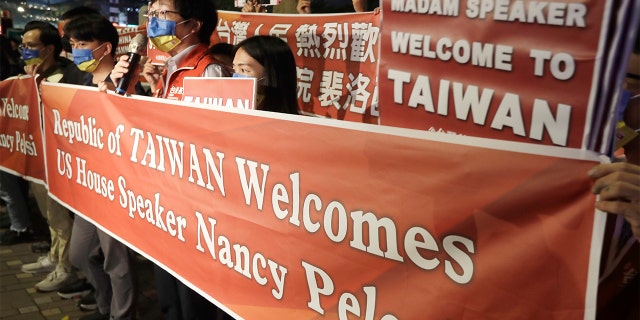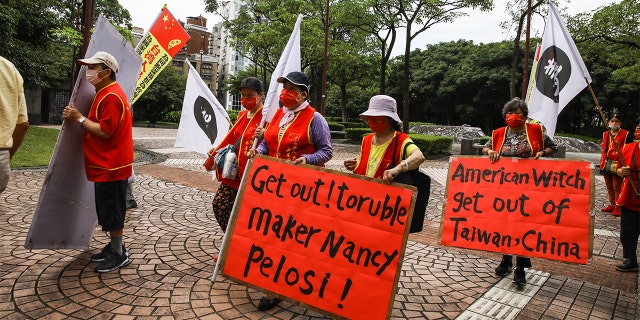

Article by Jack Davis in The Western Journal
Pelosi Issues Statement from Asia as Her Presence Sparks Military Action by China and Taiwan
Amid scrambled jets and frazzled nerves after two weeks of bellicose bombast from China, the visit of House Speaker Nancy Pelosi to Taiwan approached Tuesday.
China and Taiwan each put fighter jets on alert. China, which conducted live-fire exercises in the South China Sea last week, added more maneuvers to the list.
Pelosi herself issued a statement after her delegation visited Malaysia that spoke of nothing more controversial than “shared goals for a free and secure Indo-Pacific.”
U.S. Navy deploys four warships east of Taiwan as Pelosi heads to Taipei https://t.co/M19atVX1xR
— Reuters China (@ReutersChina) August 2, 2022
But it is not what Pelosi says that has the Pacific on edge. It is what she does. Although Taiwanese officials would not confirm any arrival time, unofficial sources have been saying Pelosi will arrive sometime Tuesday night local time, according to Fox News. Taiwan is 12 hours ahead of Eastern Daylight Time in the United States.
What happens after that is anyone’s guess.
China has grown increasingly adamant under President Xi Jinping that Taiwan, where the Nationalist Chinese government established itself in 1949 after losing the civil war on the mainland, is rightfully a province of China and bristles at anything that makes Taiwan appear to be an independent nation.
As such, it has issued a variety of angry comments over Pelosi’s visit, some overtly suggesting military responses.
Hua Chunying, a spokeswoman for the Chinese Foreign Ministry, spoke of “disastrous consequences,” according to The Washington Post.
“The United States should and must take full responsibility for this,” she said.
“Pelosi’s visit now has a very different meaning,” Chu Shulong, professor of political science and international relations at Tsinghua University, told the Post, comparing Pelosi’s trip with the 1997 visit to the island of then-House Speaker Newt Gingrich.
“China is wary that if the trip takes place, it will further strengthen U.S.-Taiwan relations and encourage U.S. allies to strengthen ties with Taiwan,” Chu said.
China does not want the trip to lead to further support for Taiwan. However, Xi is in the position of balancing a tough response with the risk of outright conflict with the United States, one commentator said.
“Xi must show resolve. He has to shore up Chinese red lines and prevent further drift toward an unacceptable outcome: U.S. support for Taiwan independence,” said Bonnie Glaser, director of the Asia Program at the German Marshall Fund, according to the Post.
In the Post report, White House spokesman John Kirby said the Chinese response could take the form of missiles fired across the Taiwan Strait, as was done in a 1995-1996 crisis, or send its fighters into Taiwanese airspace, as a provocation.
Some commentators said China needed to calibrate its response to show its citizens it was not a pushover while falling short of a step that could trigger all-out war.
“We need to keep in mind that Beijing does not want a military conflict to break out with the U.S. Therefore, it will likely refrain from a response that could lead to an unintended military escalation,” said Amanda Hsiao, senior China analyst at the International Crisis Group, according to the Post.
One commentator said the main result of the trip is to put the issue of Taiwan on the radar of Americans.
“Taiwan will be the biggest winner. When did Taiwan become a major focus of U.S. politics and midterm elections?” Fan Shih-ping, professor at the Graduate Institute of Political Science at the National Taiwan Normal University, told the Post.
“The Taiwan issue has become completely internationalized, which is the last thing China and Xi Jinping want to see.”


